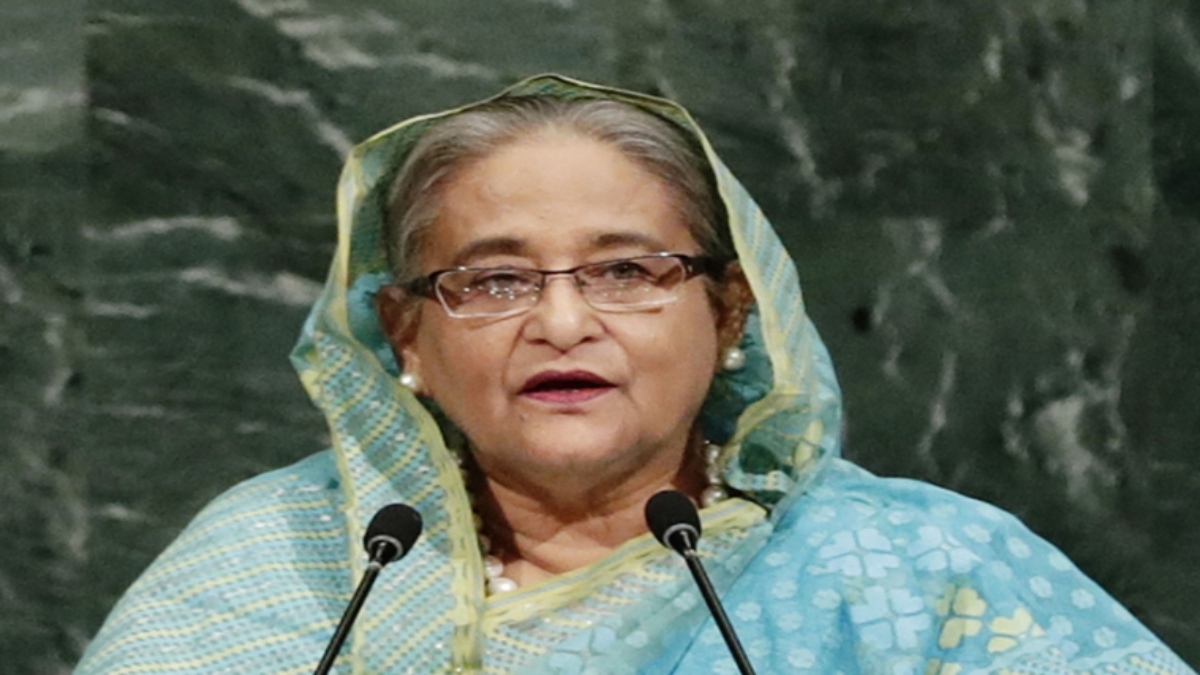


Elections in Bangladesh are scheduled for January 2024. A strong ally of India, Prime Minister Sheikh Hasina, plans to run for office again. Since 2009, Hasina and her Awami League have ruled. But Sheikh Hasina’s government has been charged of electoral manipulation and authoritarianism.
This is when America comes into play. The Hasina government has been officially urged by Washington to guarantee free elections. Concerns about human rights have led to heightened tensions in recent years between the US and Hasina’s government. America’s influence has grown to be a major political concern in Bangladesh.
India has cautioned the United States not to overburden Dhaka with pressure. One of India’s most significant neighbours and allies is Sheikh Hasina. It is important to mention Bangladesh’s participation in the most recent G20 meeting in Delhi. Sheikh Hasina and Prime Minister Shri Narendra Modi’s camaraderie was very apparent. Conversely, India has encountered challenges in its interactions with those who oppose Sheikh Hasina. The future election could spell difficulty for India’s neighbourhood strategy if she loses.
Sheikh Hasina is the leader of the ruling Awami League. The party has a history of supporting India. Awami league is known for its progressive openness, secularism, and Bengali nationalism. Hasina is the daughter of Bangladesh’s first President, Sheikh Mujib. He was unambiguously India supporter. This was brought about by India’s efforts in the war of 1971, which resulted in Bangladesh’s formation. Up until 1975, the Awami League governed the nation. In 1975, a gang of army officers killed Mujib. They asserted that Mujib was selling the nation to India. Ziaur Rahman, an army general, took over after a period of turmoil. Ziaur Rahman is thought to have played a part in Sheikh Mujib’s assassination.
The primary opposition party to Awami League, today is the Bangladesh National Party (BNP), which Ziaur Rehman founded. As anti-Indian sentiment played a significant role in Mujib’s fall, Ziaur Rahman established strong connections with China and Pakistan to counter the perceived threat posed by India.
Rahman was killed in 1981, leaving the India-Bangladesh relationship tense and marred by mistrust. Khaled Zia, his widow, is currently in charge of the BNP. She was Prime Minister twice (1991–1996 and 2001–2006). She persisted in the BNP anti-Indian stance.
On the other hand, during Sheikh Hasina’s tenure (1996–2001, 2006–present), there have been close ties with India. In order to facilitate trade, India is interested in increasing connectivity with Bangladesh. Bus service has resumed. Railway lines and waterway routes between India and Bangladesh, have all been restored with assistance from India.
Previously a sensitive matter, increased communication with India has become the norm now. Additionally, both nations are discussing a free trade pact. A trilateral electricity trade agreement involving Bangladesh, India, and Nepal is currently being worked on, a long pending demand of Bangladesh for years.
Sheikh Hasina stated unequivocally that she would not permit terrorist organisations to launch insurgencies against India on Bangladeshi soil. The militant leaders of organisations like ULFA were extradited back to India by her government. As opposed to this, Khalida Zia’s government was criticized for her blatant inactions, at times overtly supporting Anti-India, insurgencies in nexus with, Pakistan’s ISI.
Concerning important subjects like women’s and minority rights in Bangladesh, Hasina and the Awami League have adopted a more secular and progressive stance. She has also taken strong action against Islamist extremist organisations. The nation’s economic change has also been attributed to her administration. Bangladesh’s economy has grown at one of the fastest rates in the world during her leadership. Her administration also contributed to the nation’s decline in extreme poverty.
There is now more trust between Bangladesh and India. The tough Land Boundary Agreement was hammered out between New Delhi and Dhaka in 2015. Agreements regarding the sharing of water have also advanced considerably. Hence, India is interested in Hasina staying on as Bangladesh’s Prime Minister.
And that gets us to the elections in January 2024. After 15 years in office, Hasina is running for reelection, but there is a powerful anti-incumbency emotions against her. According to certain surveys, Bangladeshis hold Hasina in high regard, but they are less upbeat about the Bangladesh’s economic growth or the stability of its democracy.
The opposition BNP, led by Khaleda Zia, is threatening to boycott elections. She demands free and fair elections and have charged Hasina with electoral tampering. Many people believe that elections could be rigged. Protests and riots have also occurred in Bangladesh.
That is where USA jumps in. Sheikh Hasina has been urged by Washington to guarantee a fair and impartial electoral process. The US has threatened to revoke visas for anyone found to “undermine” elections. This meddling in Bangladesh’s internal affairs has grown to be a very contentious topic.
Khalida Zia is alleged to be using America’s action as justification for her position. On the other hand, Sheikh Hasina has expressed her anger with this US policy. According to reports, India has become involved and requested that US ease its pressure on Hasina.
India worries that radical Islamists organisations, in Bangladesh might become more powerful if Hasina loses the upcoming elections. Additionally, India has warned the US that pressing Hasina could force Bangladesh closer to China. China is one of Bangladesh’s main suppliers of defense equipment and its top trading partner.
China has openly denounced US political meddling in Bangladesh. Additionally, the US might be jeopardising its own attempts to strengthen relations with Dhaka. The United States of America is Bangladesh’s main export market and has pledged to support the country’s military modernization efforts.
Although India is open to collaborating with the US .This is a major illustration of the US’s reluctance to provide India with strategic support. India’s hard-earned gains in Bangladesh are in danger of being undone by undermining a reliable Indian ally and in turn strengthen China’s position.
Siddhartha Dave is an alumnus of the United Nations University in Tokyo and a former Lok Sabha Research Fellow. He writes on foreign affairs and national security.